Speakers 

Stefania Albanesi
Stefania Albanesi is a professor of economics at the University of Miami Herbert Business School. She is a macroeconomist whose research interests include the determinants and implications of various dimensions of inequality and the distributional implications of government policies. Albanesi has studied the political economy of inflation, the optimal taxation of capital and labor income, and the evolution of gender disparities in labor market outcomes. Her current research focuses on the relation between changing trends in female labor market participation and aggregate business cycles and on the relation between credit scores and equitable access to consumer credit markets. Before her appointment to the University of Miami, she was a professor at several universities, and she was a research officer at the Federal Reserve Bank of New York. Albanesi completed her PhD in economics at Northwestern University and has a bachelor's degree in economics from Bocconi University.
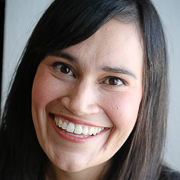
Francisca Antman
Francisca Antman is a professor at the University of Colorado Boulder, faculty director for Early-Career Faculty Development in the Office of Faculty Affairs, and faculty affiliate in the Population Program at the CU Population Center. She is a development and labor economist with special interests in international migration and human capital investments as well as the allocation of resources within households and families. Antman is currently serving on the American Economic Association (AEA) Committee on the Status of Women in the Economics Profession and as co-director of the AEA Committee on the Status of Minority Groups in the Economics Profession Mentoring Program. She also served as the chair of the Scholarship and Awards Committee for the American Society of Hispanic Economists (ASHE). She was recently elected president of ASHE and will serve in that role in 2024. Antman earned her PhD and MA in economics from Stanford University and her AB in economics from Harvard University.
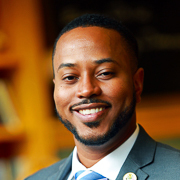
Peter Q. Blair
Peter Q. Blair is an assistant professor of education at the Harvard Graduate School of Education, where he co-directs the Project on Workforce. He serves as a faculty research fellow of the National Bureau of Economic Research and the principal investigator of the BE-Lab, a research group with partners from Harvard University, Clemson University, and the University of Illinois Urbana-Champaign. His group's research focuses on the link between the future of work and the future of education, labor market discrimination, occupational licensing, and residential segregation. Blair received his PhD in applied economics from the Wharton School at the University of Pennsylvania, his MSc in theoretical physics from Harvard University, and his BSc in physics and mathematics from Duke University.

Anat Bracha
Anat Bracha is an associate professor in the Banking and Finance Department at the Hebrew University Business School. Before joining the Hebrew University, Bracha was a senior economist in the Federal Reserve Bank of Boston Research Department and an assistant professor at the Tel-Aviv University's Eitan Berglas School of Economics. She focuses on research that integrates insights from psychology into economics and is applicable to public policy. The topics she studies fit into three broad categories: decision-making under risk, risk perception, and (in)attention; relative thinking in incentives, such as relative pay; and gig work. Bracha received her PhD and MA in economics from Yale University and her BA in economics from Bar-Ilan University in Israel.
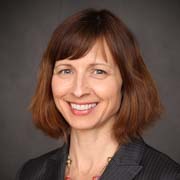
Mary A. Burke
Mary A. Burke is a senior economist and policy advisor at the Federal Reserve Bank of Boston. She is an applied labor economist studying the economics of health behaviors and health outcomes, education, social norms, and the gig economy. Before joining the Boston Fed in 2005, she served as an assistant professor of economics at Florida State University. She gives regular briefings on the New England economy to senior leaders with the Federal Reserve System and to public audiences. Burke earned a BA in mathematics from Brown University and an MA and PhD in economics from Johns Hopkins University.
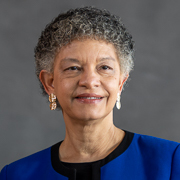
Susan M. Collins is president and CEO of the Federal Reserve Bank of Boston, which is part of the US central bank. She is a participant on the Federal Open Market Committee, which sets US monetary policy. Collins, who took office in July 2022, oversees all the bank's activities—including economic research and analysis, banking supervision and financial stability efforts, community economic development activities; and a wide range of payments, technology, and finance initiatives. Collins is an international macroeconomist with a lifelong interest in policy and its impact on living standards. She has published widely and served as a provost, dean, professor, research scholar, and board member at a variety of universities and organizations, including the Federal Reserve Bank of Chicago, where she served as a director for nine years. Earlier in her career, Collins spent 16 years living in Massachusetts, as an assistant then associate professor at Harvard University, earning a PhD in economics at the Massachusetts Institute of Technology, and as an undergraduate at Harvard.

Daniel H. Cooper
Daniel H. Cooper is a vice president and economist in the Federal Reserve Bank of Boston Research Department, where he heads the Household Decision-making group. Cooper regularly contributes macroeconomic analysis to aid in the monetary policy deliberations of the Bank's president. His main research interests involve household behavior, although he also focuses on topics related to monetary policy and the labor market. Cooper's recent work has centered on the effect of credit access on consumption, the effect of fluctuations in bank lending on consumption, the effect of monetary policy on house price appreciation, and the effect of minimum wage changes on inflation and consumer spending. He is currently working on projects involving the effect of student debt burdens on consumer behavior, the impact of monetary policy shocks on consumption, how economic conditions impact retirement decisions, and the impact of the pandemic-related stimulus payments on expenditures. Cooper has a bachelor of arts degree in economics from Amherst College and a master's and PhD in economics from the University of Michigan.

J. Bradford DeLong
J. Bradford DeLong is a professor of economics at the University of California, Berkeley, and a fellow of the Institute for New Economic Thinking. His research interests include comparative technological and industrial revolutions, the political economy of monetary and fiscal policy, and causes of the Great Depression. DeLong served as deputy assistant secretary of the US Department of the Treasury for economic policy from 1993 to 1995. He worked on the Clinton administration's 1993 budget, on the Uruguay Round of the General Agreement on Tariffs and Trade, on the North American Free Trade Agreement, on macroeconomic policy, and on the unsuccessful health-care reform effort. Before joining the Treasury, DeLong was the Danziger Associate Professor in the Department of Economics at Harvard University. He has also been a John M. Olin Fellow at the National Bureau of Economic Research, an assistant professor of economics at Boston University, and a lecturer in the Department of Economics at the Massachusetts Institute of Technology. He received his PhD and AB from Harvard University.
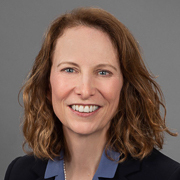
Karen Dynan
Karen Dynan is a professor of the practice in the Harvard University Department of Economics and at the Harvard Kennedy School. She is also a senior fellow at the Peterson Institute for International Economics and the chair of the American Economic Association Committee on Economic Statistics. She previously served as assistant secretary for economic policy and chief economist at the US Department of the Treasury from 2014 to 2017. From 2009 to 2013, Dynan was vice president and co-director of the Economic Studies program at the Brookings Institution. Before that, she was on the staff of the Federal Reserve Board, leading work in macroeconomic forecasting, household finances, and the Fed's response to the financial crisis. Dynan has also served as a senior economist at the White House Council of Economic Advisers (2003 to 2004) and as a visiting assistant professor at Johns Hopkins University (1998). Her current research focuses on macroeconomic policy, consumer behavior, and household finances. Dynan received her PhD in economics from Harvard University and her AB from Brown University.

Christopher L. Foote
Christopher L. Foote is a senior economist and policy advisor in the Federal Reserve Bank of Boston Research Department. His research and policy interests include housing and the macroeconomics of the labor market. Foote joined the Boston Fed in 2003 after serving as chief economist for the Council of Economic Advisers. Also in 2003, he served as an economic advisor to the Coalition Provisional Authority in Baghdad. He returned briefly to Iraq in 2004. Foote graduated from the College of William and Mary in 1987 and then worked for two years as a newspaper reporter in Harrisonburg, Virginia. He earned a PhD in economics from the University of Michigan in 1996. From 1996 to 2002, Foote taught in the economics department at Harvard University. Each spring, he teaches intermediate macroeconomics at Harvard, where he was named a professor of the practice of economics in 2012.

Kristin J. Forbes
Kristin J. Forbes is the Jerome and Dorothy Lemelson Professor of Management and Global Economics at the Massachusetts Institute of Technology Sloan School of Management. From 2014 to 2017, Forbes was an external member of the Monetary Policy Committee for the Bank of England. From 2003 to 2005, she served as a member of the White House's Council of Economic Advisers, and from 2001 to 2002, she was a deputy assistant secretary in the US Department of the Treasury. Forbes also was a member of the Governor's Council of Economic Advisers for the state of Massachusetts from 2009 to 2014. In 2019, Forbes was named an Honorary Commander of the Order of the British Empire by Her Majesty Queen Elizabeth II. Forbes' academic research addresses policy-related questions in international macroeconomics, including monetary policy, macroprudential tools, capital flows, exchange rates, inflation, and contagion. Before joining MIT, Forbes worked at the World Bank and Morgan Stanley. She received her PhD in Economics from MIT and graduated summa cum laude from Williams College.

Misty L. Heggeness
Misty L. Heggeness is an associate professor at the University of Kansas School of Public Affairs and Administration and an associate research scientist at the university's Institute for Policy & Social Research. Her research focuses on poverty and inequality, gender economics, and the high-skilled workforce. Her latest research focuses on understanding the intersectional relationships of gender, parenthood, and work and highlights gaps in economic statistics that hinder our ability to report on the complex economic lives of women. Heggeness has more than a decade of experience leading high-profile research that informed decision-making within the US federal government. Heggeness received her master's degree in public policy and social work and her PhD from the University of Minnesota.

Harry J. Holzer
Harry J. Holzer is the John LaFarge Jr. SJ Professor of Public Policy at Georgetown University's McCourt School of Public Policy, a nonresident senior fellow at the Brookings Institution, and an institute fellow at the American Institute for Research. He is a former chief economist for the US Department of Labor and a former professor of economics at Michigan State University. Holzer was a founding faculty director of the Georgetown Center on Poverty and Inequality. He is a research fellow at the Institute for Labor Economics and an affiliate of both the Institute for Research on Poverty at the University of Wisconsin-Madison and the Stanford Institute on Poverty and Inequality. Holzer is an expert on the low-wage labor market and has particularly studied the problems of minority workers in urban areas. He has authored or edited 12 books and several dozen journal articles, mostly on disadvantaged American workers and their employers and on education and workforce issues and labor market policy. Holzer received his AB (summa cum laude) and PhD from Harvard University.

Susan Houseman
Susan Houseman is vice president and director of research at the W.E. Upjohn Institute for Employment Research. She is a labor economist whose recent research focuses on temporary and contract employment arrangements, domestic outsourcing, offshoring, manufacturing, and measurement issues in economic statistics. She co-directs the Outsourcing Research Network, chairs the Technical Advisory Committee to the US Bureau of Labor Statistics, and co-directs the Labor Statistics Program at the Institute of Labor Economics in Bonn, Germany. Houseman earned her PhD and MA in economics from Harvard University and her BA in economics and international relations from the University of Virginia.

Osborne Jackson
Osborne Jackson is a senior economist at the New England Public Policy Center in the Federal Reserve Bank of Boston Research Department. His research interests include labor economics and urban and regional economics. Jackson earned his AB in economics from Harvard University and his PhD and MA in economics from the University of Michigan. Before joining the bank in 2015, he was an assistant professor of economics at Northeastern University.

Chinhui Juhn
Chinhui Juhn is the Henry Graham Professor of Economics at the University of Houston. Her research has focused on US wage inequality and its causes and the impact of changing wage structure on other labor market outcomes, such as employment and unemployment, and the racial wage gap. Her current work examines issues in earnings instability, family labor supply, the impact of trade reforms on wage inequality and the gender gap in developing countries, and the effect of disease and mortality on fertility decisions in Africa. Juhn received her PhD from the University of Chicago and her BA from Yale University.

Jeffrey Kling
Jeffrey Kling is the research director at the Congressional Budget Office and a faculty research fellow at the National Bureau of Economic Research. Previously, he was a senior fellow at the Brookings Institution and a faculty member at Princeton University. His research has been published in the American Economic Review, Econometrica, the Quarterly Journal of Economics, and elsewhere. He earned his PhD in economics from the Massachusetts Institute of Technology and his AB from Harvard University.
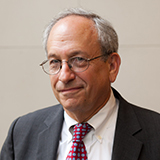
Donald Kohn
Donald Kohn holds the Robert V. Roosa Chair in International Economics and is a senior fellow in the Economic Studies program at the Brookings Institution. Kohn is a 40-year veteran of the Federal Reserve System. He served as a member and then vice chair of the Board of Governors from 2002 to 2010. He also served as an external member of the Financial Policy Committee at the Bank of England from 2011 to 2021. Prior to taking office as a member of the Board of Governors, Kohn served in several staff roles at the board, including secretary of the Federal Open Market Committee (1987 to 2002) and director of the Division of Monetary Affairs (1987 to 2001). He also served as chairman of the Committee on the Global Financial System, a central bank panel that monitors and examines broad issues related to financial markets and systems. Kohn received a PhD in economics from the University of Michigan and a BA in economics from the College of Wooster.

Dmitri Koustas
Dmitri Koustas is an assistant professor at the University of Chicago Harris School of Public Policy. He specializes in labor economics and macroeconomics, centering his research on the future of work and household finance. An important vein of his research focuses on measuring and understanding the reasons why households participate in alternative work arrangements such as the gig economy. To this end, his research pioneers new and innovative data sets, including microtransactions from an online personal financial aggregator and bill-paying application, IRS tax returns, and direct partnerships with technology companies. He received his PhD in economics from the University of California, Berkeley.

Kevin Lang
Kevin Lang is the Laurence A. Bloom Professor of Economics at Boston University. He is a labor economist whose work spans theory, econometrics, and policy. Lang is the author of Poverty and Discrimination and has written extensively on race discrimination, poverty policy, and education. Before joining Boston University, Lang was an Olin Foundation Fellow at the National Bureau of Economic Research and an assistant professor at the University of California, Irvine. He received his BA in philosophy, politics, and economics from Oxford University, his MSc in economics from the University of Montreal, and his PhD in economics from the Massachusetts Institute of Technology.
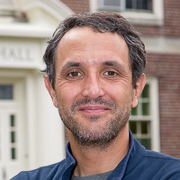
Pascal Michaillat
Pascal Michaillat is an associate professor of economics at the University of California, Santa Cruz. He previously held that same title at Brown University. Previously, he was a lecturer in economics at the London School of Economics and Political Science. Michaillat's research focuses on unemployment, economic slack, and stabilization policies—including monetary policy, government spending, and unemployment insurance. His research has been published in the American Economic Review, Quarterly Journal of Economics, Review of Economic Studies, Proceedings of the National Academy of Sciences, and other outlets. He received his PhD in economics and his MS in industrial engineering and operations research from the University of California, Berkeley. Michaillat also has an engineering degree from Ecole Centrale Paris.

Michael Mueller-Smith
Michael Mueller-Smith is an assistant professor in the Department of Economics at the University of Michigan and a faculty associate at the Population Studies Center. His research focuses on measuring the scope and prevalence of the criminal justice system in the United States as well as its broadly defined impact on the population. He is the director of the Criminal Justice Administrative Records System, a new data infrastructure project joint with the US Census Bureau that seeks to collect and link extensive quantities of criminal justice microdata with social and economic data held at the bureau. He received his PhD in economics from Columbia University and completed a National Institute of Child Health and Human Development post-doctoral fellowship at the University of Michigan's Population Studies Center.

Dhiren Patki
Dhiren Patki is an economist in the Federal Reserve Bank of Boston Research Department. His area of specialization is labor economics and macroeconomics. Patki's current research examines labor supply, consumption and savings decisions, the distribution of wages, and the integrated use of survey and administrative data. Patki has a PhD and an MA in economics from the University of Michigan and a BA in economics from Grinnell College.
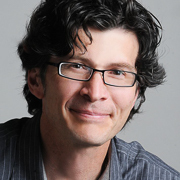
Steven Raphael
Steven Raphael is a professor of public policy at the University of California, Berkeley, and holds the James D. Marver Chair at UC Berkeley's Goldman School of Public Policy. His research focuses on the economics of low-wage labor markets, housing, and the economics of crime and corrections. His most recent research focuses on the social consequences of the large increases in US incarceration rates and racial disparities in criminal justice outcomes. Raphael also works on immigration policy, research questions pertaining to various aspects of racial inequality, the economics of labor unions, social insurance policies, homelessness, and low-income housing. He is the author of Why Are So Many Americans in Prison? and The New Scarlet Letter? Negotiating the U.S. Labor Market with a Criminal Record. He holds a PhD in economics from UC Berkeley.
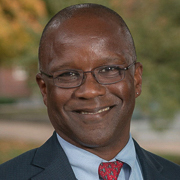
William M. Rodgers III
William M. Rodgers III is vice president and director of the Institute for Economic Equity at the Federal Reserve Bank of St. Louis. Before joining the Fed, Rodgers served as a professor of public policy and chief economist at the Heldrich Center for Workforce Development at Rutgers University. His areas of expertise include compensation, pay equity, diversity and inclusion, labor markets, and general economic trends. Rodgers is an elected member of the National Academy of Social Insurance and has served as the academy's board chair for the last five years. He also serves as treasurer for the Institute for Women's Policy Research. He was a member of President Barack Obama's transition team for the US Department of Labor and was chief economist at the department from 2000 to 2001. Rodgers holds a doctorate and a master's degree in economics from Harvard University; a master's degree in economics from the University of California, Santa Barbara; and a bachelor's degree in economics from Dartmouth College.

Cecilia Elena Rouse
Cecilia Elena Rouse is the Katzman-Ernst Professor in Economics and Education and professor of economics and public affairs at Princeton University. She formerly served as the chair of the Council of Economic Advisers for the Biden administration. She is the former dean of the Princeton School of Public and International Affairs. A labor economist with a focus on the economics of education, Rouse is the founding director of the Princeton Education Research Section and a member of the National Academy of Education. From 2009 to 2011, Rouse served as a member of President Barack Obama's Council of Economic Advisers. She worked at the National Economic Council in the Clinton administration as a special assistant to the president from 1998 to 1999. Rouse joined the Princeton faculty in 1992 after earning her PhD in economics from Harvard University, where she also completed her undergraduate work.
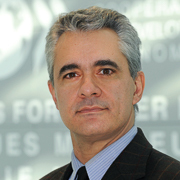
Stefano Scarpetta
Stefano Scarpetta is the director of the Employment, Labour and Social Affairs (ELS) Directorate of the Organisation for Economic Co-operation and Development (OECD). He represents the OECD in the G20 and G7 and many other high-level international forums on labor market, social, migration, and health issues. Under his leadership, ELS provides continuous assistance and support to countries in the design, implementation, and evaluation of polices, drawing from evidence-based analyses of how policy affects different economic, labor, and social outcomes. Before becoming the ELS director, in 2013, Scarpetta held different position in the OECD, leading several large-scale, innovative projects, including writing the first assessment of the original OECD Jobs Strategy. From 2002 to 2006, he was the labor market advisor and lead economist at the World Bank. Scarpetta holds a PhD in economics from the École des Hautes Études en Sciences Sociales in Paris, an M.Sc. in economics from the London School of Economics and Political Science, and a laurea summa cum Laude from Sapienza Università di Roma.

Jeffrey Smith
Jeffrey Smith is the Paul T. Heyne Distinguished Chair in Economics and the Richard A. Meese Chair in Applied Econometrics at the University of Wisconsin-Madison. He is also the associate director of research and training for the university's Institute for Research on Poverty. Smith previously was a professor of economics and public policy at the University of Michigan. His research centers on experimental and non-experimental methods for the evaluation of interventions, with particular application to social and educational programs. Smith also has written papers examining the labor market effects of university quality and the use of statistical treatment rules to assign persons to government programs, and he has consulted on evaluation issues. He received his MA and PhD in economics from the University of Chicago.

Egon Zakrajšek
Egon Zakrajšek is an executive vice president and the director of research at the Federal Reserve Bank of Boston. The director leads the research division's staff, serves as the Boston Fed's chief economic advisor, provides counsel on the economic outlook and monetary policymaking, attends meetings of the Federal Open Market Committee, and serves on the bank's Executive Committee. Zakrajšek's policy and research interests focus on macro-finance, banking, inflation dynamics, and monetary policy. He most recently served as senior advisor in the monetary and economic department of the Bank for International Settlements in Basel, Switzerland. Prior to that, he spent nearly 25 years in the Federal Reserve System, beginning his career in 1995 in the research department of the Federal Reserve Bank of New York. In 1999, he joined the division of Monetary Affairs at the Federal Reserve Board of Governors in Washington, DC, and in 2007 was appointed to the board's official staff. Zakrajšek holds a PhD in economics from New York University and a BA in economics from the University of California, Santa Cruz.